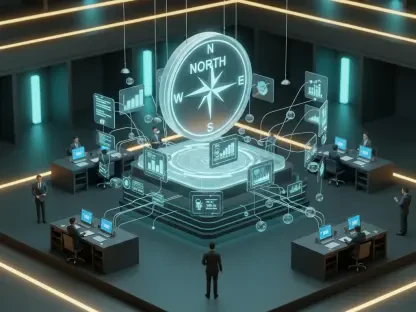The concern over the future of Google Assistant is growing among smart home users as Google shifts its focus to its new AI model, Gemini. As the tech giant aggressively promotes its new AI model, anxiety is rising about what this shift means for the functionality and relevance of Google Assistant-powered devices. As users grow more dependent on their smart home systems, the potential obsolescence of these devices due to software transitions is a critical concern. This article explores the potential impacts and user concerns surrounding the Gemini transition.
Dependence on Google Assistant
Many users have come to rely heavily on Google Assistant for daily tasks, from setting timers and sending reminders to controlling smart home devices. This dependency highlights how integral Google Assistant has become for managing household routines. With its ability to seamlessly integrate with a wide array of smart home devices and applications, Google Assistant has embedded itself deeply into the fabric of modern living. Therefore, any changes to its functionality or support generate significant anxiety among its users.
The prospect of Google phasing out Google Assistant in favor of Gemini raises alarms about the viability and longevity of current Google Assistant-powered devices. Users fear that their technology investments may soon become obsolete. As consumers have invested in an ecosystem of devices united by the common thread of Google Assistant, the idea that this support structure could disappear leaves many feeling vulnerable. The emotional and financial investments made by users in this technology are substantial, making the potential transition to Gemini a topic of great importance and concern.
Introduction of Gemini
Google’s new AI model, Gemini, promises a host of advanced features, including more natural conversations and the ability to handle more complex tasks with a deeper understanding. This marks a significant enhancement in AI capabilities. With Gemini, Google aims to offer functionalities that surpass those of Google Assistant, with more intuitive interaction and robust performance. This ambitious leap promises a new horizon for AI-driven tasks, appealing to both current users and potential adopters of Google’s ecosystem.
The push to integrate Gemini across various Google products signals a crucial strategic move, yet it leaves important questions about the fate of existing Google Assistant devices. Users are left wondering how their current technology will fit into this new AI landscape. As Google heads towards integrating Gemini, the challenge lies in ensuring that the transition does not alienate existing users. How existing Google Assistant devices will transform or coexist with Gemini remains a significant point of speculation. Users are concerned whether their devices will receive updates to support Gemini or fade into obsolescence without any backward compatibility.
Consumer Concerns
The transition to Gemini has led to significant anxiety among consumers. Sarah, a working mother, is particularly worried about her investment becoming outdated. These concerns are aggravated by the potential for planned obsolescence. As consumers, like Sarah, evaluate their dependency on Google Assistant, the fear that their daily operations could be disrupted as new models roll out is troubling. The thought of having to re-invest in new technology for continued support is daunting and financially unsettling for many users.
Nest Mini users like John depend on Google Assistant for seamless smart home integrations. The current lack of clear information from Google only intensifies their apprehension about future updates and support. The ambiguity surrounding the transition has put users like John in a state of flux, unsure of whether their devices will continue to receive necessary updates and support. Such uncertainty forces consumers to question the reliability of their investments and whether they should seek alternative solutions for their smart home needs. The apprehension stems from a deep-seated reliance on a system that may change without ample warning or adequate support planning.
Transition Challenges
Shifting from Google Assistant to Gemini is no small feat. This engineering challenge involves ensuring compatibility while also maintaining user trust. How Google manages this transition will be crucial in retaining their customer base. Google must navigate technical complexities while fostering confidence in their consumer base through clear and concerted communication efforts. The transition requires meticulous planning, phased implementation, and perhaps hardware upgrades, all without alienating loyal users who have become accustomed to the current setup.
Potential pathways include a gradual migration with phased updates or attempting to upgrade existing devices to run on Gemini. Both options come with their own set of technical and logistical hurdles that Google must carefully navigate. A phased approach might ease the transition but could also spread user frustration over extended periods. On the other hand, direct hardware upgrades may provide a more immediate solution but could lead to compatibility issues and user dissatisfaction. Managing such a large-scale transition effectively will be vital for preserving Google’s market position and user loyalty during this evolutionary period.
Impact on Third-party Devices
This AI model shift has broader implications for third-party manufacturers who have incorporated Google Assistant into their products. These companies and their customers now face uncertainty regarding future compatibility. Tech partners who invested in Google Assistant-enabled products are now potentially at a crossroads, needing to decide how to adapt to the new AI landscape or face their products becoming obsolete. The collaborative ecosystem built around Google Assistant underscores the widespread impact such a significant shift could have across the tech industry.
The lack of detailed communication from Google on how Gemini will affect third-party products adds to the speculation, causing anxiety among consumers and developers alike about their investments’ future viability. Without clear guidelines and updates from Google, third-party manufacturers may struggle to maintain or enhance their products’ functionality, leading to potential losses in consumer trust and market position. The uncertainty extends beyond consumers to developers who need to re-evaluate their strategies in light of the changing technological framework. Transparent and detailed information is crucial to ensuring these partners can effectively transition alongside Google’s new direction.
User Adaptation
In response to the looming uncertainty, users are considering diversifying their smart home ecosystems. By not solely relying on Google Assistant devices, they hope to mitigate potential disruptions. Such diversification allows users to balance their dependence on any single platform, thereby ensuring some degree of continuity if one platform undergoes significant changes. The uncertainty has prompted users to explore additional voice assistants, creating a more resilient setup that can adapt to varying tech advancements without losing core functionalities.
Exploring devices that support multiple voice assistants or adopting alternative control methods can offer greater flexibility and redundancy against abrupt platform changes. This strategy may provide some resilience in an evolving tech environment. People are becoming more conscious of the inherent risks of being overly dependent on a single company’s technology. By integrating multiple assistants and control methods, users can cushion themselves against the potential pitfalls of rapid technological shifts. This strategic diversification reflects a growing trend towards more versatile and adaptive smart home ecosystems, aimed at ensuring a smooth transition through technological evolution.
Google’s Responsibility
Concerns are mounting among smart home users regarding the future of Google Assistant as Google shifts its focus towards its new AI model, Gemini. This transition, which the tech giant is aggressively promoting, is causing anxiety about the future functionality and relevance of devices powered by Google Assistant. Users heavily reliant on their smart home systems are particularly worried about the potential obsolescence of these devices as a result of this software transition. The ongoing development and promotion of Gemini are raising significant user concerns about the reliability and longevity of current smart home technologies. Will Google Assistant continue to be supported, or will these familiar devices lose their utility? This article delves into the potential impacts and user concerns related to the Gemini transition, exploring how it might reshape the smart home landscape and what users can expect moving forward.









